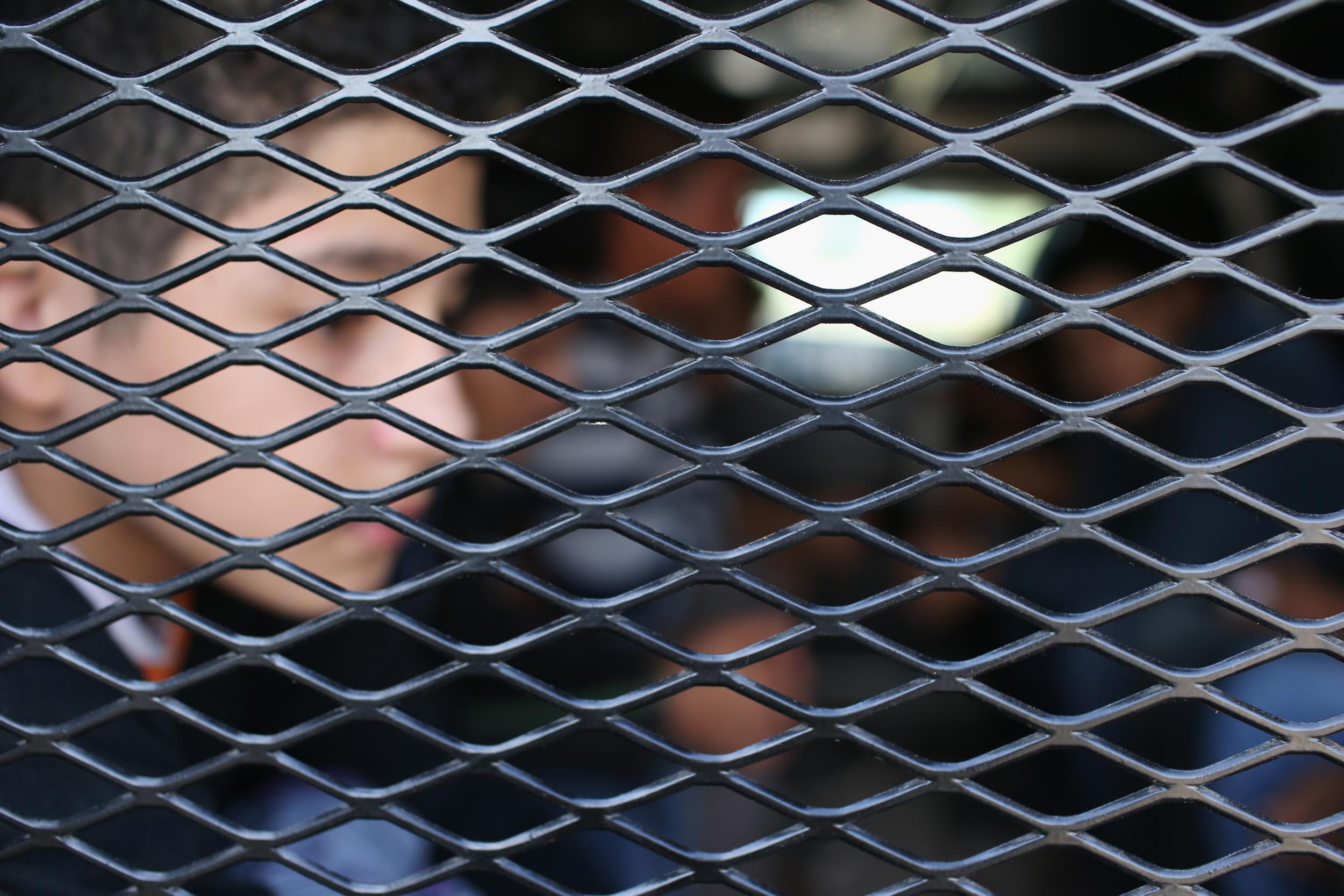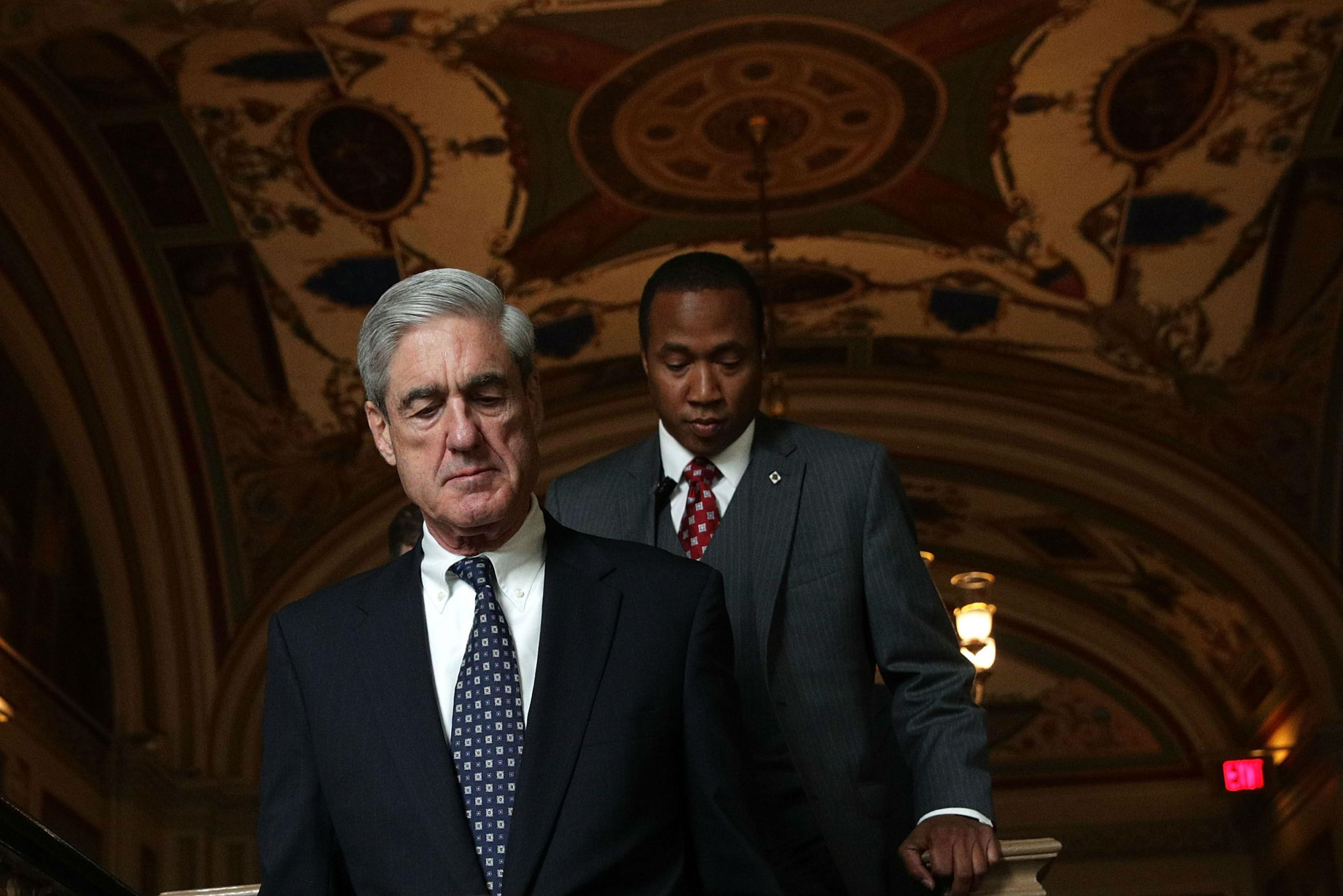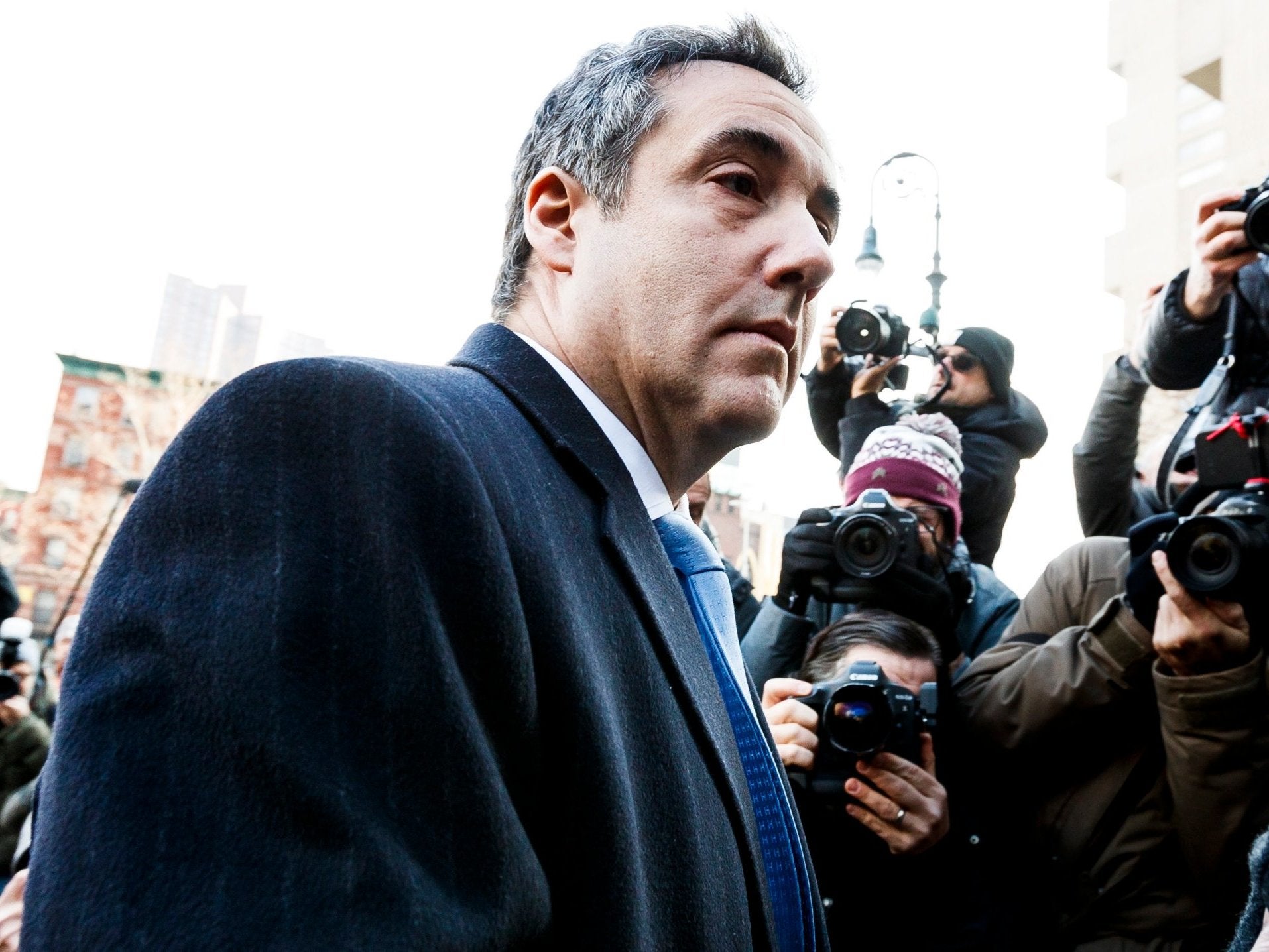It was business as usual in the White House as chaos and turbulence continue to dominate
With the cloud of the Mueller investigation still hanging overhead, there is no sign that the rollercoaster of the Trump administration is about to slow down, says Chris Stevenson


The White House is never anything but a maelstrom of emotions – each day brings a new deluge of tweets, fights and scarcely believable soundbites from a president and staff that appears to revel in chaos.
Nearly two years into the Trump administration, there are few signs of that chaos settling – ask the 19 high-profile people who left or were forced out of the White House in 2018. The slate is wiped clean every time the sun sets: positions change, Donald Trump manipulates or flat-out denies quotes set in stone hours before.
All of this occurs while the White House sits under the cloud of special counsel Robert Mueller’s Russia investigation – something we will return to later.
Given all that it can be difficult to pin down where the US stands at any given moment. But in reality 2018 involved a number of issues that are familiar, indeed some that America has been grappling with for decades. They just happened to gain a Trumpian edge.
Gun violence is never far from the headlines in America. The Las Vegas shooting of 2017 – the worst in modern American history – was followed not long into 2018 by the worst high school shooting in US history. Many students of Marjory Stoneman Douglas High School become standard bearers for firearms control in the wake of the murder of 17 students and staff on Valentine’s Day. Trump offered up his usual brand of high-risk, low-reward ideas in response – such as arming teachers.
A shooting at the Tree of Life synagogue in Pittsburgh in October brought other tensions to the surface – the antisemitic slurs that the man charged with killing 11 people is alleged to have shouted raised questions about whether Trump had increased the risk of such events. It is unfair to blame the president for the acts of one man, but the Charlottesville violence of 2017, when Trump was criticised for not strongly condemning white nationalist and Neo-Nazi groups, also sits just below the surface.
There is also the president’s demonising rhetoric on immigration, and the scandal of the family separation policy at the border. Trump thought he had won favour for ending the policy – under which children were taken from parents after illegally crossing into the US – around three months after his own administration enacted it. In reality, the images of crying and caged children as they were detained sparked outrage.
This was only just starting to dissipate when images emerged of tear gas being fired at Central American mothers and children as hundreds of people rushed the US-Mexico border in late November. The caravans of thousands of people that had been winding their way from Honduras and Guatemala for weeks before had been a frequent target for Trump during the run-up to crucial midterm elections.

Immigration is not a new issue in Washington, but the rhetoric from the White House is typical Trump. The president seeks always to energise his supporter base, and he repeatedly claimed without evidence that the caravans were full of “criminals”. He went quiet after the elections had passed, until he gave the green light for troops, who had been rushed to the border to meet the migrants, the option of deadly force. Trump’s border wall was a constant (if not yet physical) presence. Having asked congress for $5bn to help build it, the plan is still not much closer to fruition than it was during his campaign.
There are other campaign promises that Trump is keeping however. In 2018 he continued to push out proposals for rolling back Obama-era environmental rules with the aim of helping America’s fossil fuel industries. That came despite increasingly dire warnings about climate change – about which the president is still sceptical in the face of overwhelming evidence – and on the ground events like the Camp wildfire in California. That fire was deadliest the state has ever seen, scorching hundreds of thousands of acres and destroying the town of Paradise.
The midterm results – like the economy – Trump claimed as a success. The Republicans lost control of the House of Representatives, giving Democrats a foothold to try and push back against the president’s policies, but the GOP tightened their grip on the Senate: political deadlock looks a dead cert therefore in 2019.
A sense of the fights to come was given by the confirmation hearing for the latest Supreme Court Justice, Brett Kavanaugh. Testimony from Dr Christine Blasey Ford, who alleged Kavanaugh had sexually assaulted her while the pair were in high school, was a powerful moment in US history that also marked how far the #MeToo movement has reached. Kavanaugh denied the allegation and eventually took his seat on the bench, confirming a swing towards conservatism on the highest court in the land.

On the international front, Trump did his best to push his America First agenda, riling a number of allies in the process. A historic meeting with North Korea leader Kim Jong-un in Singapore gave Trump a chance to push on with what would be something his predecessors have been unable to achieve – removing Pyongyang’s nuclear threat. But progress stalled as the year ended.
Trump also pulled out of the Iran nuclear deal to the dismay of international partners, continued to hit out at Nato allies military spending and rocked relations with the EU over tariffs on certain goods. A trade war with China also left stock markets volatile and overshadowed a meeting of the G20.
The refusal of Trump to push back against the Saudi Arabian royal family over the murder of journalist Jamal Khashoggi at Riyadh’s consulate in Turkey was another flashpoint. A CIA assessment was reported to show “high confidence” that Crown Prince Mohammad bin Salman was involved in the order to kill Khashoggi, but the Trump administration said the murder is still under investigation and cited the repeated denials from Riyadh that the crown prince was involved in any way.
Amid international outcry over the killing, Trump called arms deals with Saudi Arabia too important to the US economy to put in jeopardy. The Saudi public prosecutor had blamed a “rogue” operation for the killing, absolving the prince.
Ultimately though it was Russia – and Mueller’s investigation into Moscow’s apparent meddling in the 2016 election and possible collusion with the Trump campaign – that was the theme which prevailed over all others in America’s 2018.
It will almost certainly be the biggest issue Trump, and America, will face in 2019 too, having the potential to shake the White House to its core. Whether Trump’s constant tweets about it being a “witch hunt” and there being “no collusion” betray an underlying anxiety depends where you stand on the man.
In July, the president faced a backlash over a meeting with Russia’s president Vladimir Putin when Trump shied away from criticising the Kremlin leader and appeared to cast doubt on US intelligence service assessments that Moscow was involved in election meddling. Trump quickly backtracked and said he misspoke, claiming he had “full faith and support” for America’s intelligence agencies.
His caginess had to be seen in the context of Mueller’s federal investigation into election meddling, possible collusion with Trump campaign officials, possible obstruction of the probe by Trump himself and any other pertinent issue. The investigation continued slowly to inch towards the president’s door, with 33 people and three Russian companies either now indicted or having pleaded guilty. Another person was investigated by Mueller before his case was handed over to others in the justice department.
Five former Trump associates have taken plea deals and pleaded guilty to some form of charges. Former national security adviser Michael Flynn, former Trump campaign foreign policy adviser George Papadopoulos, former Trump campaign manager Paul Manafort and his associate Rick Gates and Trump’s former personal lawyer and fixer Michael Cohen.

Flynn and Papdopoulos pleaded guilty to making false statements to investigators, with Papadopoulos having already served a prison sentence. Gates also pleaded guilty to false statements alongside a fraud charge related to lobbying work in Ukraine. Manafort was found guilty of eight financial crimes related to that Ukrainian lobbying work – so not directly related to the Russia inquiry – before striking a plea deal with Mueller. However, that was put in doubt late in the year when Mueller’s team accused him to lying to investigators after the deal was struck, something Manafort denies.
However, the biggest news moment of the year came when Cohen was jailed for just three years. His case was passed from Mueller to federal prosecutors in New York where he pleaded guilty to eight counts, including tax fraud charges and – most importantly insofar as Donald Trump was concerned –campaign finance violations in relation to hush money payments to adult actress Stormy Daniels and former Playboy playmate Karen McDougal. Both had alleged affairs with Trump, denied by the president, but he was directly implicated in criminal conduct by prosecutors who said in a court filing that Cohen had worked with Trump over the payments. Cohen himself publicly said he had done as Trump directed him.
Prosecutors also said they had reached a deal with the publisher AMI about the payment to McDougal, facilitated by Cohen, which was used to buy her story with the intention of never running it. With that, Trump’s potential legal troubles will only grow.

Cohen was given an extra two months in prison as part of the Mueller probe for lying to Congress over a Trump building project in Moscow that was never taken up. In his sentencing recommendation, Mueller praised Cohen’s cooperation with his team. After his sentencing, Cohen’s lawyer for the trial suggested his client would have more to say once Mueller’s report is out.
Trump finally saw fit to force out attorney general Jeff Sessions after the latter recused himself from the Mueller probe, amid many White House and administration changes. In the week before Christmas, James Mattis resigned as Defence Secretary, apparently in protest at the president’s decision to withdraw troops from Syria. The circles of power appeared to be every decreasing.
With Mueller apparently not yet ready to issue his report,it seems clear that the dark clouds over the Trump White House will not be lifted for at least a little while yet.
Join our commenting forum
Join thought-provoking conversations, follow other Independent readers and see their replies
Comments